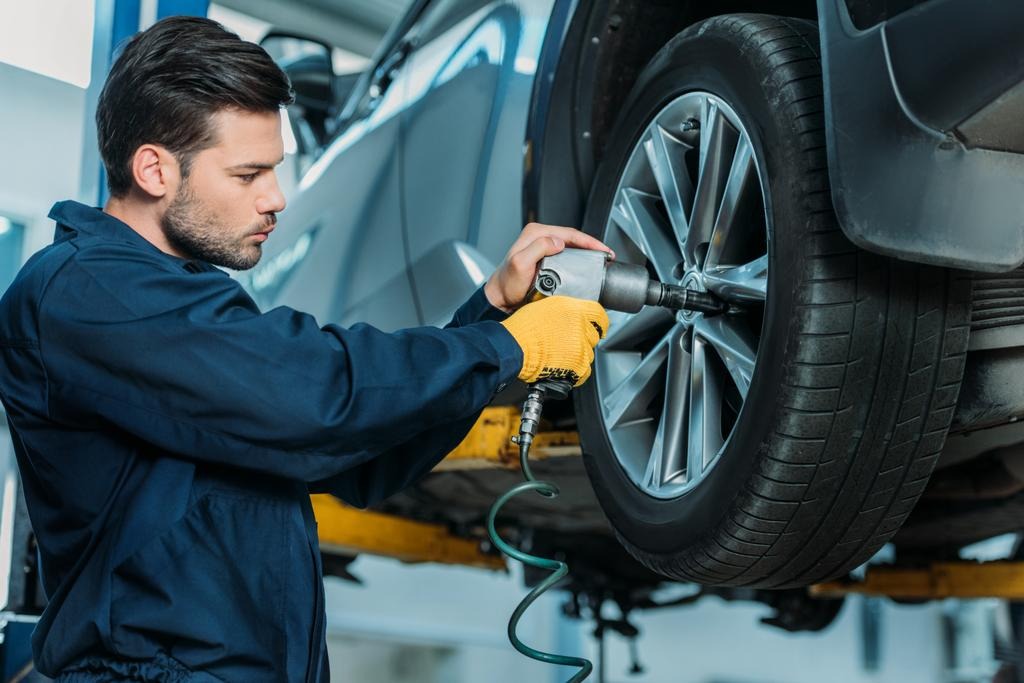Your car is more than a means of transportation—it’s a key part of your daily life. Whether you rely on it for commuting, errands, or road trips, your vehicle needs regular care to stay safe and dependable. Yet many drivers unknowingly skip essential maintenance tasks, often leading to bigger, more expensive problems down the road.
Routine auto service isn’t just a recommendation—it’s a vital investment in your car’s longevity and performance. The essential services listed below are what every driver should focus on in order to maintain the smooth operation of their car and prevent expensive repairs. Many auto shops in Aurora, Colorado offer comprehensive maintenance packages that help drivers stay on top of essential services like oil changes, brake inspections, and fluid checks.
1. Oil Changes
An oil change is arguably the most critical routine service for your vehicle. Engine oil lubricates the internal parts, reduces friction, and prevents overheating. Over time, oil breaks down and collects debris, making it less effective.
Most vehicles require regular oil changes based on a time interval, often every three to six months, depending on driving habits and engine type. Engine wear, reduced fuel economy, and even total engine failure might result from skipping this service.
2. Brake Inspections And Service
Brakes are essential for your safety—and everyone else’s on the road. Squeaking, grinding, or longer stopping distances are signs your brake system may need attention.
A regular brake inspection can identify worn pads, damaged rotors, or low fluid levels before they become hazardous. Replacing brake pads early is far less expensive than repairing a full braking system after prolonged neglect.
3. Tire Maintenance
Your tires are the only part of your vehicle that touches the road, making them critical to performance and safety. Regular tire rotations, alignments, and pressure checks help ensure even wear and extend tire life.
Underinflated or worn-out tires can decrease fuel efficiency and increase your risk of blowouts, hydroplaning, and poor handling. A professional inspection every few months can make all the difference.
4. Battery Checks
There’s nothing worse than a dead battery on a busy morning. Most car batteries last 3 to 5 years, but factors like extreme temperatures or frequent short trips can shorten that lifespan.
Have your battery tested during regular maintenance visits. A weak battery often gives off early warning signs—slow engine cranking, dim lights, or electrical issues. Catching it early can prevent the inconvenience of getting stranded.
5. Fluid Top-Offs And Replacements
Your vehicle uses multiple fluids beyond just oil. Transmission fluid, brake fluid, coolant, power steering fluid, and windshield washer fluid all play vital roles in keeping your car running safely and efficiently.
Checking and refilling these fluids as part of your maintenance routine can prevent overheating, mechanical failures, and poor vehicle performance. Some, like transmission fluid, need to be flushed and replaced at specific mileage intervals.
6. Air Filter Replacement
Your engine and cabin air filters trap dust, pollen, and debris. Over time, they become clogged and reduce airflow—impacting engine efficiency and cabin air quality.
Replacing these filters regularly keeps your engine running smoothly and ensures you’re breathing cleaner air inside your car. This simple and inexpensive service can improve both performance and comfort.
7. Check Engine Light Diagnostics
That little glowing engine symbol isn’t something to ignore. While it could be a minor issue like a loose gas cap, it could also signal something serious, such as a misfiring engine or emissions problem.
Modern diagnostic tools can quickly pinpoint the issue. Addressing it early often leads to quick, affordable repairs, while ignoring it can lead to major mechanical damage.
8. Scheduled Tune-Ups
Every vehicle has a manufacturer-recommended maintenance schedule, usually outlined in the owner’s manual. This includes spark plug replacement, timing belt inspections, fuel system cleaning, and more.
Staying on top of these scheduled services helps maintain optimal performance and fuel efficiency, and it ensures your vehicle retains its value.
Conclusion
Skipping auto maintenance may save you time and money in the short term, but it often leads to larger bills and bigger headaches later. By prioritizing essential auto services like oil changes, brake checks, and battery testing, you not only protect your investment—you also keep yourself and others safer on the road. For the best results, work with a trusted local mechanic or auto service center that understands your car’s specific needs. With a little routine attention, your vehicle will stay in top shape for many miles to come.
